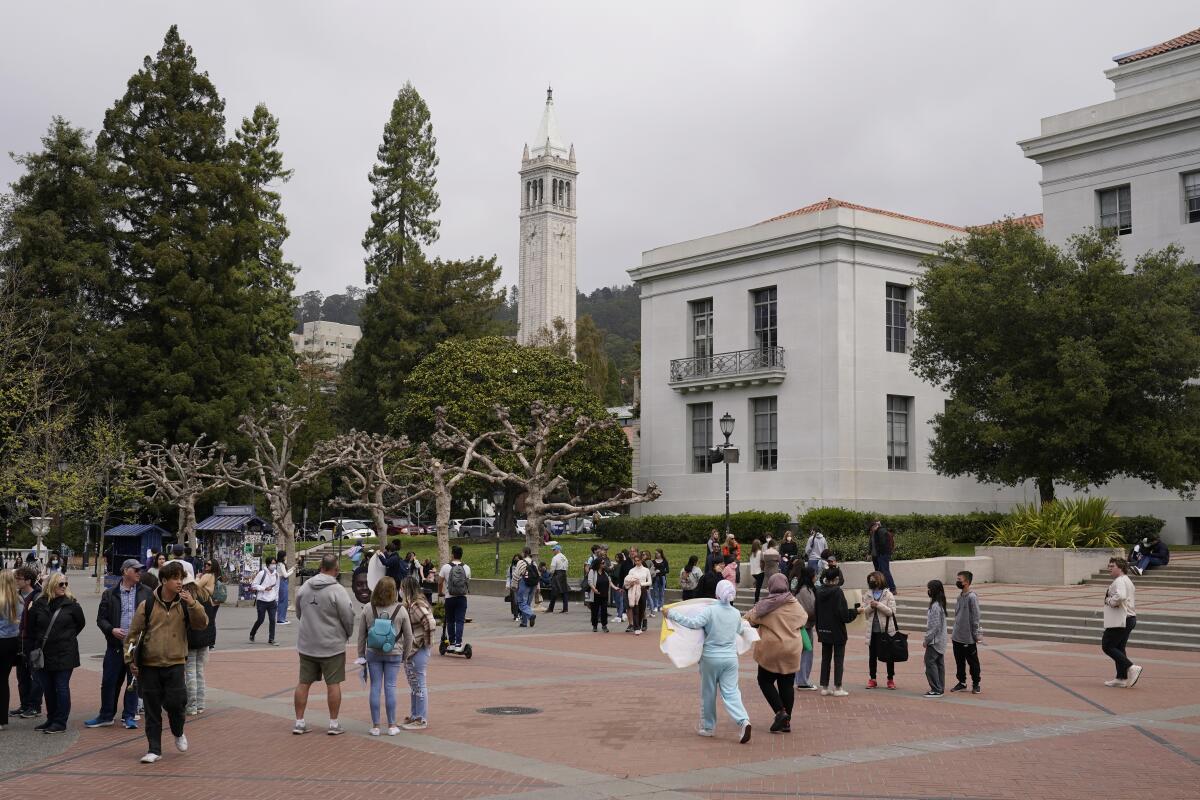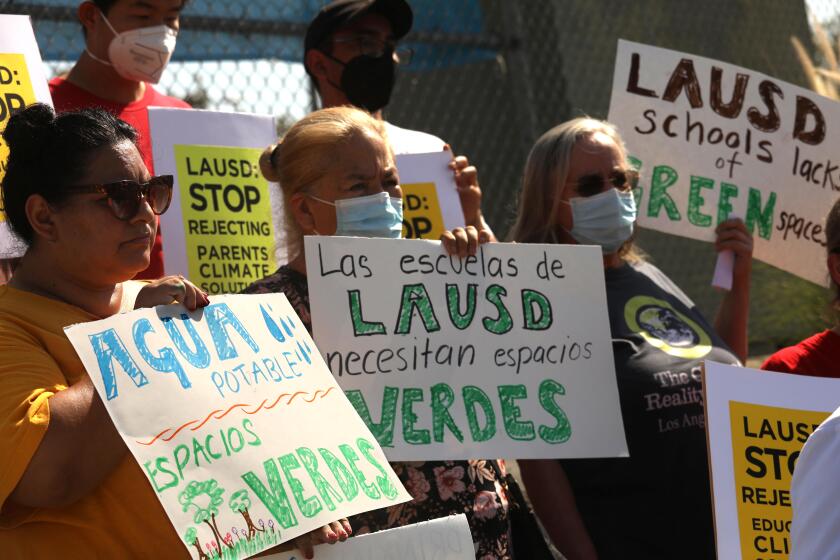Letters to the Editor: Speaker bans by UC Berkeley law student groups -- really?

- Share via
To the editor: In his op-ed article, “When a Berkeley Law debate on free speech got turned into a social media circus,” law school dean Erwin Chemerinsky doesn’t mention that eight student affinity groups besides the Law Students for Justice in Palestine amended their bylaws to ban pro-Zionism speakers.
Many of the student group leaders who signed on to this ban know very little about the Israeli-Palestinian conflict. Nevertheless, they signed on because they were persuaded by a virulently anti-Israel group that it was in the interest of social justice.
Furthermore the signatories, as a requirement of the bylaw, were obliged to attend a training session called “Palestine 101,” another step in their indoctrination.
The banning of speakers on the basis of national identity or political view does not bode well for the intellectual climate of a law school. Shouldn’t that be the very place for debate and dialogue?
The boycotters, satisfied with one side of the story, are shortchanging themselves as far as inquiry, discussion and the resulting knowledge are concerned.
Anne Chomyn, Altadena
..
To the editor: I am glad that Chemerinsky has written an op-ed article for The Times defending the 1st Amendment right of anti-racist student organizations to decide not to host speakers that support Israeli apartheid. He was right to do so, and his analysis of the law is correct.
However, I was disappointed that while he paid considerable attention to the feelings of Jewish community members about the pledge, he totally ignored how Palestinians on campus might feel when Zionist organizations make their political commitments known.
For example, Berkeley Hillel, which claims to be the heart of Jewish life on campus, has a very similar policy effectively prohibiting itself from hosting anti-Zionist speakers, which would ban the vast majority of Palestinians.
By only considering how these issues affect Jewish students and ignoring Palestinians, Chemerinsky is contributing to the dehumanization of Palestinians that often plagues these debates.
Dylan Saba, Brooklyn
The writer, an alumnus of the UC Berkeley School of Law, is a staff attorney for Palestine Legal.
..
To the editor: While Chemerinsky “knows of no instance in which any speaker has been excluded based on religion or viewpoints about Israel,” the bylaw bars any speakers who “have expressed and continued to hold views or host/sponsor/promote events in support of Zionism, the apartheid state of Israel, and the occupation of Palestine.”
This goes beyond saying that no group that adopted the bylaw would run programs praising Israel’s many contributions to the world.
The bylaw decrees that support for the existence of the Jewish state in the Jews’ ancestral homeland is so abominable that, for instance, Alan Dershowitz, a Zionist, would not be invited to speak on the role of the defense in a criminal case.
Toby F. Block, Atlanta





